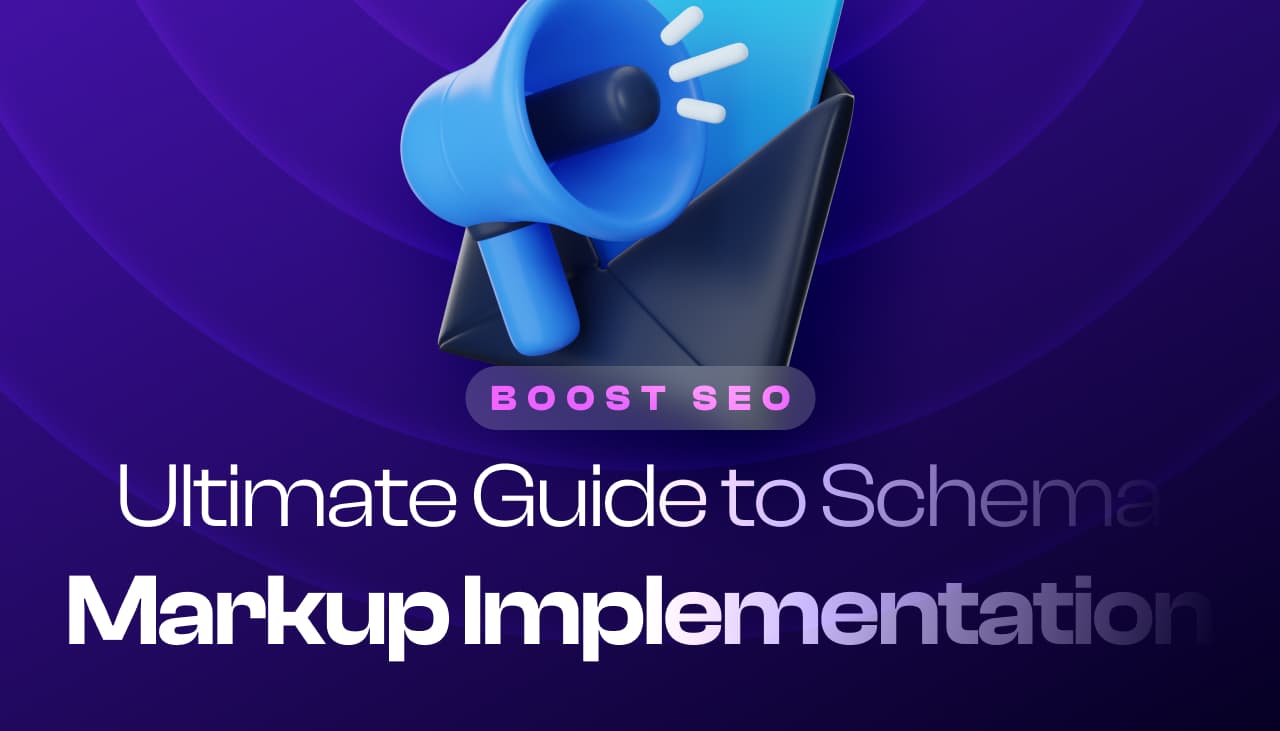Venturing into the global market requires more than just translating your content. It’s about understanding the nuances of language and culture that influence search behavior. That’s where international keyword research comes in, a critical step for any business looking to expand its digital footprint across borders. International keyword research helps you identify crucial keywords that international searchers are using so you can optimize your website accordingly.
With higher visibility in the search engine results pages (SERPs), your website may receive more visitors who may then purchase from you.
We’ll dive into the techniques that can help uncover the keywords your global audience is using. It’s not just about finding the right words; it’s about connecting with your audience on a deeper level.
Let’s explore how to make your content resonate worldwide. This guide will cover everything from understanding cultural and linguistic nuances to utilizing country-specific search engines and analyzing competitor keywords.
By the end, you’ll have a comprehensive toolkit for conducting thorough international keyword research that can significantly boost your global SEO efforts.
Why International Keyword Research is Important
When diving into the global market, understanding the unique search behavior of each region is crucial. We’ve seen countless businesses expand their reach only to stumble due to a lack of nuanced understanding. International keyword research bridges this gap, ensuring we speak the language of our global audience, literally and figuratively.
This process involves more than just translating keywords; it requires a deep dive into the cultural, linguistic, and technical specifics of each market. By carefully analyzing and adapting to these factors, we can ensure our content resonates well across different search engines, significantly enhancing our global SEO efforts.
Different countries and cultures use different terminology, slang, and search intent. What works in one region might fall flat in another. We’re not just talking about translating words but also capturing the essence of how people communicate and seek information online.
For instance, what Americans refer to as ‘sneakers’ are known as ‘trainers’ in the UK. Such differences may seem minor, but they’re crucial for effective keyword research. We also need to pay attention to local holidays, events, and trends as they can heavily impact search queries. Understanding these nuances is key to tailoring our content and keywords to match the local search intent.
Furthermore, search engines like Google often tailor their algorithms to better suit the linguistic and cultural nuances of their diverse user base. This means a one-size-fits-all approach to SEO doesn’t work on a global scale. It’s crucial to understand that while Google dominates globally, other search engines hold significant market shares in specific countries.
Competitive analysis on an international level
Competitive analysis becomes even more vital when we step into the international arena. By analyzing the keywords our competitors are targeting in different regions, we gain invaluable insights. This allows us to craft strategies that are not only informed but also competitive.
Tools like SEMrush and Ahrefs are invaluable here. They allow us to see the exact keywords competitors rank for and how much traffic these keywords bring them. This information is a goldmine for refining our own keyword strategy. We always look for gaps in our competitors’ strategies. Finding keywords they’ve overlooked gives us an advantage.
This can open up new avenues for traffic and engagement that our competitors haven’t tapped into. Focusing on long-tail keywords can be particularly fruitful, as they often have less competition and higher conversion rates.
Localization isn’t just about language translation; it involves understanding and integrating cultural nuances into our content. This can make the difference between resonating with an international audience and being completely overlooked.
Localization extends beyond just the keywords. It encompasses all content on the website, ensuring it speaks the language of the target audience, both literally and figuratively. This involves adjusting date formats, currency, units of measure, and even color schemes and imagery to reflect local preferences.
To effectively map out these nuances, we utilize tools and analytics designed for international SEO. Coupling these with insights from local experts ensures our keyword research is not just thorough but also culturally and linguistically informed.
By prioritizing international keyword research, we don’t just adapt our content for global markets. We transform our offerings to meet the specific needs, desires, and search habits of diverse audiences around the world. This process involves a deep understanding of local search behavior, cultural context, and seasonal trends that might affect search behavior.
For instance, holiday periods can significantly impact what people are searching for. To ensure accuracy, we use advanced tools designed for international SEO. These tools let us delve into specific markets, giving us a clearer picture of what local audiences are looking for.
We compile our findings into comprehensive keywords lists that reflect the local language and search intent, allowing us to tailor our content strategy to match local preferences and search habits.
Understanding the Cultural and Linguistic Nuances
When venturing into international markets, grasping the cultural and linguistic nuances becomes paramount. We understand that every culture has its unique way of searching online. Keywords that work well in one country might not resonate in another. It’s not just about translating content; it’s about localizing it to fit the cultural context.
This is where the concept of ‘localization’ comes into play. Localization involves adapting existing keywords from one language to another with all the behavioral and cultural context in mind. To localize keywords, an international SEO specialist has to pay close attention to how people are searching. Finding successful keywords for a market can be a fine line.
For example, a study focusing on German keywords found that searching for ‘make your lips look bigger’ produced a monthly search volume of 20, while ‘how to make your lips bigger’ has a monthly search volume of nearly 1,200. It’s a small change, but the latter keyword volume demonstrates how a native speaker is more likely to ask questions according to the syntax and vocabulary that feels natural to them.
Cultural references, slang, and regional dialects significantly influence search behavior. For instance, what Americans refer to as “sneakers” are known as “trainers” in the UK. Such differences may seem minor, but they’re crucial for effective keyword research. We also pay attention to local holidays, events, and trends as they can heavily impact search queries. It’s important to note that these differences extend beyond just vocabulary. The way people phrase their searches can vary significantly between cultures.
For example, in some cultures, people might prefer to ask questions directly (e.g., ‘How do I fix a leaky faucet?’), while in others, they might use more indirect phrasing (e.g., ‘Leaky faucet solutions’). Understanding these subtle differences in search behavior is crucial for creating content that truly resonates with your target audience and ranks well in local search results.
Understanding search intent varies across cultures as well. What might be a straightforward product search in one country could be a quest for detailed product reviews in another. Identifying these nuances is key to tailoring our content and keywords to match the local search intent. For example, in some countries, users might prefer to search for ‘best smartphone 2023’ to get a quick list of top options, while in others, they might search for ‘smartphone comparison reviews’ to get in-depth analysis before making a purchase.
These differences in search intent can significantly impact your content strategy. It’s not just about translating your existing content, but about creating content that aligns with the specific informational needs and preferences of each local market. This might mean creating more detailed product comparison pages for markets that prefer in-depth reviews, or more concise, list-style content for markets that prefer quick, direct information.
Localization extends beyond just the keywords. It encompasses all content on the website, ensuring it speaks the language of the target audience, both literally and figuratively. This involves adjusting date formats, currency, units of measure, and even color schemes and imagery to reflect local preferences. For example, while the color red might symbolize good luck in China, it could be associated with danger or warning in other cultures.
Similarly, date formats vary widely – while the US uses MM/DD/YYYY, most of Europe uses DD/MM/YYYY. These seemingly small details can significantly impact user experience and trust. Moreover, localization should extend to your website’s structure and navigation. This might involve creating country-specific subdomains or directories (e.g., example.com/fr/ for French content) and implementing hreflang tags to help search engines serve the right language version to users. Remember, the goal is to make your international visitors feel as if the website was created specifically for them.
Mapping out nuances in international SEO
To effectively map out these nuances, we utilize tools and analytics designed for international SEO. Coupling these with insights from local experts ensures our keyword research is not just thorough but also culturally and linguistically informed. Some of the top tools for international keyword research include SEMrush, Ahrefs, Moz, and Google Keyword Planner. Each of these tools offers unique features for international SEO. For instance, SEMrush allows you to specify the location and language for your keyword research, providing data on search volume, keyword difficulty, and related keywords specific to your target market.
Ahrefs offers a feature to see the popularity of keywords across different regions, which is particularly useful for targeting multiple countries that share a language. However, tools alone aren’t enough. Collaborating with native speakers or local SEO experts can provide invaluable insights that tools might miss, such as cultural connotations or local slang that could impact your keyword strategy.
Incorporating these strategies into our international keyword research not only enhances visibility across search engines globally but also engages and resonates with the target audience on a deeper level.
By prioritizing the understanding of cultural and linguistic nuances, we take a significant step towards creating a truly global presence. However, it’s important to remember that international SEO is not a one-time process. Search trends change, algorithms evolve, and cultural preferences shift over time. Regular monitoring and adjustment of your international SEO strategy is crucial. This might involve periodically reviewing your keyword performance, staying updated on changes in local search engine algorithms, and continuously gathering feedback from your international audiences.
By maintaining this dynamic approach, you can ensure that your global digital presence remains strong and relevant, regardless of how the international digital landscape changes.
Conducting Localized Keyword Research
In tackling the international market, we know how critical localized keyword research is. It’s not just about translating content; it’s about understanding the local dialect, slang, and cultural nuances. Our approach starts with getting to grips with the local search behavior. This involves more than just looking at search volumes.
We need to understand the context behind the searches, the intent of the users, and how this varies across different cultures and regions. For example, a search for ‘football’ in the US would likely be about American football, while the same search in most other countries would be about soccer. Similarly, seasonal trends can vary greatly between countries – while ‘beach holidays’ might be popular in December in Australia, it would be ‘ski trips’ in many Northern Hemisphere countries.
Understanding these nuances is crucial for creating content that truly resonates with local audiences and ranks well in local search results.
We often partner with local experts who can provide valuable insights into what drives search queries in their regions. These experts help us navigate the complexities of local search engines and their algorithms.
These local experts are invaluable because they understand the cultural context, current events, and local trends that influence search behavior. They can identify nuances that might be missed by even the most sophisticated keyword research tools. For example, a local expert might know that a certain phrase has recently gained popularity due to a viral social media trend, or that a particular term has negative connotations in their culture.
They can also provide insights into local competitors and industry-specific terminology. Moreover, these experts can help interpret data from local search engines that might use different metrics or have different ranking factors compared to global giants like Google. This local expertise, combined with data-driven research, allows us to create a truly localized and effective SEO strategy.
Localization isn’t just a one-step process; it’s multifaceted. It involves analyzing the local competition, understanding the cultural context, and identifying seasonal trends that might affect search behavior. For instance, holiday periods can significantly impact what people are searching for.
But it goes beyond just holidays. Different cultures have different shopping seasons, different attitudes towards certain products or services, and different ways of expressing their needs online. For example, in some Asian countries, the concept of ‘face’ (social standing and reputation) heavily influences consumer behavior, which can affect how people search for luxury or status-symbol products.
In contrast, in some Scandinavian countries, there’s a cultural concept called ‘Jante Law’ that discourages individual success and boasting, which could influence how people search for and respond to certain types of marketing messages. Understanding these deep cultural nuances is crucial for effective localization and can significantly impact your keyword strategy and overall content approach.
To ensure accuracy, we use advanced tools designed for international SEO. These tools let us delve into specific markets, giving us a clearer picture of what local audiences are looking for. Some of the most popular tools include SEMrush, Ahrefs, and Moz, each offering unique features for international keyword research.
For example, SEMrush allows you to conduct keyword research for specific countries and languages, providing data on search volume, keyword difficulty, and related keywords. Ahrefs offers a feature to compare keyword popularity across different countries, which is particularly useful when targeting multiple markets that share a language.
Google’s Keyword Planner, while free, also offers valuable insights into search volumes and trends in different locations. However, it’s important to remember that these tools should be used in conjunction with local expertise. While they provide valuable data, they can’t fully capture the cultural nuances and local context that a native speaker or local SEO expert can provide.
We compile our findings into comprehensive keywords lists that reflect the local language and search intent. Here’s a quick snapshot of what that process might yield:
However, it’s important to note that these findings are just the starting point. Once we have our initial keyword list, we need to analyze each keyword for its potential value to our SEO strategy. This involves looking at factors such as search volume, keyword difficulty, and relevance to our content. We also need to consider the user intent behind each keyword.
Are users looking for information, trying to make a purchase, or seeking a specific location? Understanding this can help us create content that not only ranks well but also meets the needs of our target audience.
Additionally, we should look for long-tail keyword opportunities – these are longer, more specific phrases that might have lower search volume but often indicate higher intent and can be easier to rank for. By combining all these factors, we can create a truly effective international keyword strategy.
| Market | Key Findings |
|---|---|
| Germany | Preference for in-depth, technical content |
| Brazil | High interest in video content |
| Japan | Searches often include local slang terms |
Armed with this information, our content strategy tailors our offerings to match local preferences and search habits. This ensures that our international content resonates with each specific audience, enhancing engagement and visibility. But it’s not just about creating content around these keywords.
We also need to consider how to naturally incorporate these keywords into our content in a way that feels organic and valuable to the reader. This might involve creating entirely new content pieces, adapting existing content to better suit local markets, or even rethinking our content formats.
For example, if we find that how-to videos are particularly popular in a certain market, we might focus on creating more video content for that audience. Additionally, we need to consider how these keywords fit into our overall site structure and internal linking strategy. By strategically using our target keywords in URLs, meta descriptions, and internal links, we can further boost our SEO efforts and create a more cohesive user experience for our international visitors.
While navigating through this complex terrain, we consistently monitor and adjust our strategies based on performance metrics.
This iterative process allows us to refine our approach, ensuring that our international SEO efforts are as effective as possible. Key performance indicators (KPIs) we might track include organic traffic from different countries, keyword rankings in local search engines, bounce rates, and conversion rates for international visitors.
It’s important to set up proper tracking and analytics for each target market, which might involve using different tools or setting up separate properties in Google Analytics for different country-specific subdomains or directories. We also need to stay updated on changes in local search engine algorithms and adjust our strategies accordingly.
For example, if a local search engine starts prioritizing mobile-first indexing, we might need to focus more on mobile optimization for that market. Regular audits of our international SEO efforts, perhaps quarterly or bi-annually, can help us identify areas for improvement and ensure we’re staying ahead of the competition in each market.
Utilizing Country-Specific Search Engines
When venturing into international keyword research, we can’t overlook the pivotal role of country-specific search engines. Google may dominate globally, but search engines like Yandex in Russia and Baidu in China hold significant market shares in their respective countries.
Understanding their algorithms and user behavior is crucial. For instance, Baidu places a high emphasis on local hosting and content in Simplified Chinese. It also favors websites with a .cn domain and those hosted within China. Yandex, on the other hand, has a unique approach to indexing and places more weight on behavioral factors. It also has its own version of meta tags, like ‘yandex-verification’.
In South Korea, Naver is the dominant search engine, and it operates more like a content portal than a traditional search engine. It favors content from its own platforms, so having a presence on Naver Blog or Cafe can be crucial for visibility. Understanding these nuances and tailoring your SEO strategy accordingly can give you a significant advantage in these markets.
Each of these local search engines has its own set of rules and preferences. This means we must tailor our SEO strategies to fit their unique requirements. For instance, Baidu places a high emphasis on local hosting and content in Simplified Chinese. But the differences go beyond just language preferences.
Baidu’s algorithm, for example, tends to favor websites with a higher quantity of content, unlike Google which often prioritizes quality over quantity. It also places more importance on meta keywords, which Google largely ignores.
Yandex, the dominant search engine in Russia, has its own unique ranking factors. It places more weight on on-page SEO elements and less on backlinks compared to Google. It also has a different approach to indexing, often taking longer to index new content.
Additionally, Yandex has stricter policies on duplicate content and may penalize sites more heavily for this than Google does. Understanding these differences is crucial for success in the Russian market. It’s not just about translating your content into Russian, but about rethinking your entire SEO strategy to align with Yandex’s preferences and the specific search behaviors of Russian users.
Understanding these nuances is crucial for success in these markets. It’s not just about translating your existing SEO strategy, but about creating a new, tailored approach for each search engine you’re targeting.
Partnering with local experts is another strategy we employ – when it comes to international SEO. Their firsthand experience with these search engines can provide us with critical insights. This can include specific keyword preferences, seasonal trends, and cultural nuances that might not be obvious from the outside.
Equally, we pay attention to mobile search trends within these countries.
Many regions have a mobile-first internet user base, which impacts search behavior significantly. Adapting our content to be mobile-friendly and understanding mobile search quirks in these markets are key steps.
Leveraging country-specific search engines involves more than just translation.
It requires a deep dive into the cultural, linguistic, and technical specifics of each market. Through careful analysis and adaptation, we ensure our content resonates well across different search engines, enhancing our global SEO efforts significantly.
Analyzing Competitor Keywords
When venturing into new markets, we can’t overlook the strategy of analyzing competitor keywords. This is a cornerstone of international SEO. It helps us identify what’s working in our target locales. By examining the keywords our competitors rank for, we gather critical insights into local search trends and user intent.
Competitor keyword analysis starts with identifying our main competitors in each international market. Tools like SEMrush and Ahrefs are invaluable here. They allow us to see the exact keywords competitors rank for and how much traffic these keywords bring them. This information is a goldmine for refining our own keyword strategy.
We always look for gaps in our competitors’ strategies. Finding keywords they’ve overlooked gives us an advantage. This can open up new avenues for traffic and engagement that our competitors haven’t tapped into. Focusing on long-tail keywords can be particularly fruitful, as they often have less competition and higher conversion rates.
Equally important is analyzing the quality of content our competitors produce. High-ranking pages are not just about the right keywords; they’re also about delivering valuable content. We learn what type of content resonates with our target audience by studying the top-performing pages.
We also pay close attention to the backlink profiles of our competitors’ top-ranking pages. This reveals which high-authority sites link back to them, an indicator of valuable content. Through this, we identify potential opportunities for backlinks that could elevate our own site’s authority and ranking.
Remember, keyword analysis is not a one-time task but an ongoing process. Search trends change, and so do competitors’ strategies. Keeping a pulse on how competitor keywords evolve allows us to adjust our approach, ensuring we remain competitive and relevant in each market.
Engaging in this continuous cycle of analysis and adjustment is crucial. It ensures our international SEO strategy is dynamic and responsive to the ever-changing global search landscape.
The takeaways of international SEO
We’ve journeyed through the intricate world of international keyword research, uncovering the layers that make it a cornerstone of global market expansion. It’s clear that diving deep into the cultural and linguistic specifics of each target market isn’t just beneficial—it’s essential.
By leveraging advanced tools, local expertise, and a keen understanding of regional search engines, we can tailor our content strategies to resonate on a global scale. We’ve also seen the value of competitive analysis and the insights it brings into local preferences and trends.
Let’s not forget the importance of mobile optimization in regions where smartphones are the primary gateway to the internet. As we adapt and refine our strategies based on performance metrics, our efforts in international SEO will not only enhance our visibility but also forge deeper connections with our audience worldwide.
Armed with these strategies, we’re better positioned to navigate the complexities of international markets and achieve a truly global presence.
Frequently Asked Questions
What is the importance of international keyword research?
International keyword research is crucial for understanding the unique search behavior, terminologies, and intents across different countries and cultures. This ensures content resonates with a diverse global audience and improves visibility on international search engines.
How does Google adapt its algorithms for international markets?
Google tailors its algorithms to accommodate the linguistic and cultural nuances of its diverse user base worldwide, ensuring relevant and localized search results for users in different regions.
Why is competitive analysis vital in international SEO?
Competitive analysis in international SEO provides insights into competitors’ keyword strategies, helping businesses identify opportunities and refine their keyword targeting for better visibility and engagement in foreign markets.
What role does localization play in international keyword research?
Localization involves adapting content to meet the unique cultural, linguistic, and search habits of international audiences. This includes integrating local dialects, slang, and understanding cultural nuances, ensuring content is relevant and engaging across different cultures.
How can partnering with local experts boost international SEO efforts?
Local experts provide valuable insights into local search behavior, cultural nuances, and the intricacies of local search engines. Their expertise helps businesses navigate the complexities of international SEO more effectively and tailor strategies to specific regional preferences.
What is the significance of using country-specific search engines for international SEO?
Understanding and optimizing for country-specific search engines like Yandex in Russia and Baidu in China is essential. Each has unique algorithms and user preferences, requiring tailored SEO strategies to ensure optimal visibility in those markets.
How does analyzing competitor keywords benefit international SEO?
Analyzing competitor keywords helps businesses understand local search trends and user intent. Tools like SEMrush and Ahrefs can unveil competitors’ keywords, allowing businesses to identify gaps in their strategies and optimize their keyword targeting for better performance.
Why is monitoring mobile search trends important in international SEO?
Many regions prioritize mobile internet use, making it essential to adapt content for mobile-friendliness. Understanding mobile search quirks and trends is crucial for tailoring SEO strategies to these mobile-first audiences, enhancing visibility and engagement.






















Responses (0 )